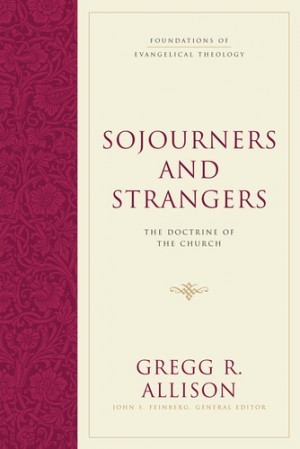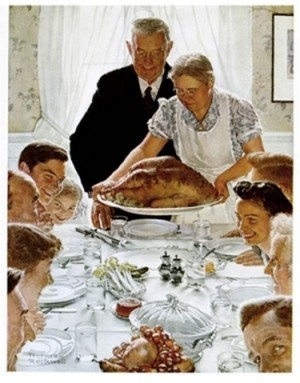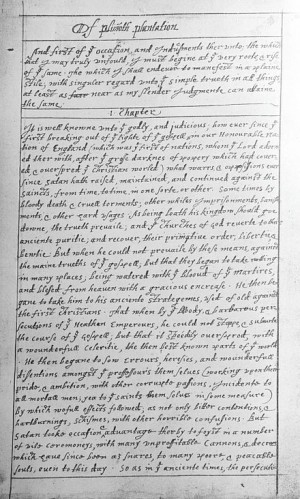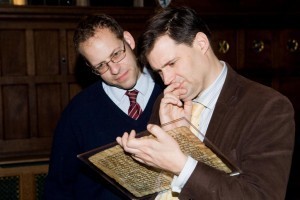Justin Taylor's Blog, page 180
November 26, 2012
Longing for Wholeness: Chronic Suffering and Christian Hope
Mark Talbot, associate professor of philosophy at Wheaton College, has been laboring for years on a book tentatively entitled When the Stars Disappear. If you’re reading this and you’re interested in the heartbreaking and perplexing problem of profound suffering, you may want to pause and pray that God would give Dr. Talbot wisdom and strength and joy and endurance to finish this work. I believe it will be uniquely helpful to the church.
He recently spoke at the 2012 Works of God Conference on hope and endurance when the suffering does not stop.
You can listen to the audio or watch the video below:
See also his recent blog posts, which come from the book: “Remember to Breathe” and “Hope for Chronic Suffering.”
Three Challenges in Writing a Contemporary Theology of the Church
 Gregg Allison, professor of Christian theology at The Southern Baptist Theological Seminary and an elder at Sojourn Church in Louisville, has penned the volume on the doctrine of the church in the Foundations of Evangelical Theology series: Sojourners and Strangers: The Doctrine of the Church (Crossway).
Gregg Allison, professor of Christian theology at The Southern Baptist Theological Seminary and an elder at Sojourn Church in Louisville, has penned the volume on the doctrine of the church in the Foundations of Evangelical Theology series: Sojourners and Strangers: The Doctrine of the Church (Crossway).
In a recent interview with Credo Magazine he was asked about some of the challenges of writing a contemporary ecclesiology:
One of the key challenges was writing an ecclesiology for an audience that is broadly evangelical and thus holds to divergent positions on ecclesiological matters such as continuity and discontinuity between the Old Testament and New Testament and the old covenant people of God and the new covenant people of God, the normative or descriptive nature of the book of Acts, when the church began and who are its members, the relationship of the church to Israel and the kingdom of God, the nature and recipients of baptism, the nature and recipients of the Lord’s Supper, how the church should be governed (e.g., episcopalian, presbyterian, congregational with one pastor and a board of deacons, congregational with a plurality of elders), and the like.
In my opinion, a generic evangelical ecclesiology cannot be written. Thus, I chose to write a broadly baptistic ecclesiology (reflecting my theological persuasion and my membership in several baptistic churches over the course of my life) that (I hope) fairly presents other ecclesiologies and interacts with them in a respectful and irenic fashion.
At the same time, my ecclesiology develops in some directions that are not typically baptistic (though not without historical precedents and contemporary examples) like opening with a discussion of biblical covenants and identifying the church as the new covenant people of God, a significant emphasis on church discipline, a view of the Lord’s Supper that is both memorial and a type of spiritual presence (with strong warrant from 1 Cor. 10:14-2), a plurality of elders, the diaconate consisting of both deacons and deaconesses (this latter point is affirmed within a complementarian framework), and advocacy of a particular multisite church structure.
The second challenge was making my way through a large body of contemporary literature on the church, the vast majority of which is pragmatic in nature and thus focuses on the ministries of the church without ever considering what the church is. But I had made a decision early on in my writing that I would start my ecclesiology with a consideration of the nature of the church—its attributes (see point 4 below)—then move to the ministries of the church, because I was convinced that those ministries must flow from the church’s identity, and not visa versa. Thus, while learning a good deal from this contemporary literature on how to do church, I was not particularly helped in constructing my ecclesiology.
A third challenge was the tenor of most contemporary ecclesiologies: almost universally, they underscore the problematic nature of constructing a doctrine of the church. Whether they focus on the dreadful state of the contemporary church (e.g., its consumerist mindset), or accentuate the multiplicity of ecclesiologies (to emphasize the difficult task ahead), or underscore the divisions separating churches due to their different stances on homosexuality and/or gender, most contemporary formulations of the doctrine approach ecclesiology as a problem with which to wrestle. Such a negative orientation weighed quite heavily on me as I sought to write my book.
You can read the whole interview here. David Mathis also had a 15-minute audio conversation with Dr. Allison for the “Theology Refresh” podcast.
You can also read the table of contents and the 30+ page introduction online for free (as PDF) or below:
Other books in the Foundations of Evangelical Theology series, edited by John Feinberg:
John Feinberg, No One Like Him: The Doctrine of God
Graham Cole, He Who Gives Life: The Doctrine of the Holy Spirit
David Clark, To Know and Love God: Method of Theology
Bruce Demarest, The Cross and Salvation: The Doctrine of Salvation
November 25, 2012
The Church, the Gospel, and Violence against Women
 The United Nations designates November 25 as the International Day for the Elimination of Violence against Women.
The United Nations designates November 25 as the International Day for the Elimination of Violence against Women.
Several folks weighed in on the this horrendous act of evil. Below are some links and excerpts:
Justin Holcomb, “A Hard Look at Violence against Women.”
The Bible teaches us that because of sin, suffering and violence entered the world. One expression of sin which is seen throughout Scripture and human history is the pervasive male domination of and violence against women. Here are some of the numerous ways that women around the world continue to experience violence and oppression. . . .
Russell Moore, “The Church and Violence against Women.”
Male violence against women is a real problem in our culture, one the church must address. Our responsibility here is not simply at the level of social justice but at the level of ecclesical justice as well.
We must teach from our pulpits, our Sunday school classes, and our Vacation Bible Schools that women are to be cherished, honored, and protected by men. This means we teach men to reject American playboy consumerism in light of a Judgment Seat at which they will give account for their care for their families. It means we explicitly tell the women in our congregations, “A man who hits you has surrendered his headship, and that is the business both of the civil state in enacting public justice and of this church in enacting church discipline.”
Owen Strachan, “Why Abusive Men Repudiate True Manhood: Letter to an Abusive Husband.”
Your present pattern, Bob, looks like Satanic headship. You are attacking and tearing down. The biblical pattern is Christic headship, sacrificial, others-centered, offered in order that others might flourish and thrive. If you do not cease your ways, the elders of your church will “deliver [you] to Satan for the destruction of the flesh” (1 Cor. 5:6). If you are bent on destroying your loved ones, you will face the prospect of a life outside the church, which places the soul in danger of eternal destruction if gospel repentance does not happen. . . .
Repent of your sin. It is a stench in God’s nostrils. Were it not for your worth as an image-bearer, I would find it difficult not to threaten harm to you myself, and to bring many men with me. As things stand, if you continue your pattern of abuse, I will indeed bring men with me, and we will rescue your wife and family, and we will not allow you to harm them. We will bring the full force of the law crashing down upon you. We are men of God; we are not weak; we are leaders and protectors of wives and children. The Lord has saved us from our own wickedness and transformed us to be good to those he has given us. As men of God, we are not scared of you. We will surely stand up to you. We urge you to stop your abuse, repent of your sin, and leave the pattern of destruction you have begun.
Mike Cosper, “Abuse and the (Complementarian) Christian Response“:
First—your membership in this church offers you no shelter or comfort. I might come visit you—whether in jail or at your home—but it won’t be to reassure you of anything but a call to repentance. I am encouraging your wife to distance herself from you until you demonstrate repentance. Apart from that, I see no reason to encourage her to get anywhere near you. It may be true that some wife-beaters have sought the shelter of pastors and churches, calling abuse a private matter, and avoiding legal consequences. I have no intentions of allowing such shelter. The authorities will be involved.
Second—as a member in this church, you’ve signed a covenant that invites church discipline in this situation. This means that your pastors are committed to helping protect your wife from you, and we will instigate a process that—apart from demonstrable repentance on your part—will end with you being removed from membership. One who lives in unrepentant sin (like spousal abuse) should take no comfort from the gospel, because their life bears no fruit of the gospel. We’ll invite the church to treat you as an unbeliever, and to call you to repentance when they see you. As a whole community,we are united in believing that your sins are devastatingly dangerous for your soul and for the witness of the church in the world. These concerns are why we would carry out this discipline.
Third—many abusers justify their abuse with a list of their spouses “sins”—nagging, refusal to submit, etc. Some Christian men even attempt to justify domineering and abusive behavior with the Bible. I want to disabuse you of any such justification, starting with a Bible passage that might (at first glance) appear as part of your defense. Ephesians 5:22-28. . . .
Matt Smethurst, “Don’t Mess with Her, Man.”
“[The LORD's] soul hates . . . the one who loves violence” (Ps. 11:5).
That last verse is particularly scary, isn’t it? You’d think it would simply say God hates violence. Instead, it says God hates the violent. He hates wife-beaters.
No matter how it’s spun, abusing women is unacceptable. Always. No asterisks.
God calls husbands to love their wives (Col. 3:19; Eph. 5:25, 33), to enjoy them (Eccl. 9:9), to understand them (1 Pet. 3:7), to honor them (1 Pet. 3:7), to nourish them (Eph. 5:29), to cherish them (Eph. 5:29), to provide for them (1 Tim. 5:8), to praise them (Prov. 31:28), and, well, you get the point.
Brothers, may the Lord deliver us from ever tolerating a pugnacious coward who would dare damage one of his beautiful image-bearers.
Mary Kassian, “Statement on Abuse“:
Would you take a moment right now to pray for the women in your church? Pray that any abusive relationships may come to light, and that abuse may not remain hidden. Pray for abused women to have the courage to seek help. Pray for the leaders and counselors to know how to wisely deal with each situation. Pray for the power of God to bring insight, clarity, deliverance and healing. Pray that the church may seek to reflect the loving, protective heart of God, and work for the elimination of violence against women.
For pastors looking for gospel-centered resources on counseling both the perpetrator and the victim, you can order the following articles from CCEF:
David Powlison and Paul David Tripp, “How Should You Counsel a Case of Domestic Violence? Helping the Perpetrator”
Guidelines for helping the perpetrator of domestic violence. Define the common need for grace carefully. Penetrate the fog of confusion and evasion. Bring the word of grace in Jesus Christ that aims for fundamental restructuring of heart and lifestyle.
Ed Welch, “How Should You Counsel a Case of Domestic Violence? Helping the Victim”
Brief guidelines for helping a person who has been violated. First, hear the cries of the oppressed. Second, teach the oppressed to put their hope in God. Third, teach the oppressed to “disarm” the abuser by bold godliness in the love of Christ, rather than fluctuating between timidity and revenge. [Letter to the editor about this article in 16:1]
At the end of the day, let’s remember two truths: (1) God hates wife-beaters, and (2) Christ died for wife-beaters. Both statements are biblical. It has been too easy in the past to ignore sin and advert our eyes from this cowardly violence, functionally downplaying the first truth and the reality of biblical justice. And it may be too easy today to functionally downplay the second truth and the reality of biblical grace by not offering gospel hope to the repentant who have godly sorrow.
November 22, 2012
The Magician’s Twin: C.S. Lewis and the Case Against Scientism
“More than a half century ago, famed writer C.S. Lewis warned about how science (a good thing) could be twisted in order to attack religion, undermine ethics, and limit human freedom. In this [half-hour] documentary “The Magician’s Twin: C.S. Lewis and the Case Against Scientism,” leading scholars explore Lewis’s prophetic warnings about the abuse of science and how Lewis’s concerns are increasingly relevant for us today.”
HT: Keith Plummer (@XianMind)
November 21, 2012
Family Feuds and Tensions over the Holidays
 Not everyone’s Thanksgiving looks like the idyllic setting Norman Rockwell depicted.
Not everyone’s Thanksgiving looks like the idyllic setting Norman Rockwell depicted.
CCEF’s Tim Lane has a booklet entitled Family Feuds: How to Respond, which you can read online for free.
Here’s a summary focused on the holiday celebrations and stresses of family get-togethers.
For some, these gatherings are dreaded and avoided when possible.
Why is that? Why is it so hard to get along with the people you grew up with? Is there any hope that old, hurtful patterns can be changed?
In this booklet, Tim Lane writes about these challenges and how through your relationship with Christ you can learn how to love your family and reach out to them in concrete and practical ways.
Lane begins by rehearsing a number of truths:
Every family is flawed
Flawed families need God’s grace
Your family of origin does not determine your identity
God’s call to love includes your family
Changed by the cross of Christ
He then gives some practical strategies for change:
Respond with grace to your family
Take responsibility for your sins, not your family’s
Become an instrument of grace
Make wise choices for your children
Persevere in love
Here’s the conclusion:
Loving your family in these ways will mean dying to self-centeredness and growing in Christ-centeredness. As you pray and ask the Spirit of God to change you, old barriers you have erected between you and your family will come down. This will encourage your family members to take down the barriers they have put up.
As your love for God grows, your movement towards your parents and siblings will be wise. Instead of looking for their validation or approval you will love them the sacrificially, the way Christ has loved you. You will be able to move toward them because God, in Christ, has moved towards you and his love has been poured into your heart (see Romans 5:4). God’s love will flow from you into your relationship with your family. You can depend on the unfailing love of God to change you and your family.
In a complementary piece, Russell Moore offers “a few quick thoughts on what followers of Jesus ought to remember, especially if you’ve got a difficult extended family situation.” He outlines his counsel under five headings:
Peace. (“Your presence should be one of peace and tranquility. The gospel you believe ought to be what disrupts. There’s a big difference.”)
Honor. (“Pray for God to show you the ways those in your life are worthy of honor, and teach your children to follow you in showing respect and gratitude.”)
Humility. (“Unless you’re in an exceptionally sanctified family, you’re going to see failing marriages, parenting crises, and a thousand other shards of the curse. If your response is to puff up as you look at your own situation, there’s a Satanist at your family gathering, and you’re it.”)
Maturity. (“Some of the tensions Christians face at holiday time have nothing to do with outside oppression as much as internal immaturity on the part of the Christians themselves.”)
Perspective. (“At the Judgment Seat of the Lord Christ, you’ll be responsible for living out the gospel in every arena to which the Spirit has led you . . . including Aunt Flossie’s dining room table.”)
You can read the whole thing here.
November 19, 2012
What Really Happened on the First Thanksgiving?

Plymouth Colony Governor Edward Winslow
How do we know what really happened at the first Thanksgiving at Plymouth (in the fall of 1621)? Mostly our knowledge comes from a letter written a couple of months later (December 13, 1621) by pilgrim Edward Winslow (1595-1655).
Nathaniel Philbrick—the author of Mayflower: A Story of Courage, Community and War and the younger readers’ version The Mayflower and the Pilgrims’ New World—summarizes:
He describes a harvest festival that occurred not at the end of November but in late September or early October. Interestingly, Winslow does not call it a thanksgiving. He does not mention any turkeys.
What the pilgrims did have were ducks and geese. Winslow tells us that once they had harvested their crops, Governor William Bradford ordered four men to go fowling so that we might rejoice together after a more special manner.
In just a few days, the hunters secured enough ducks and geese to last the entire settlement a week. But what began as an English affair soon became an overwhelmingly native celebration.
Earlier that spring, the Wampanoag leader Massasoit had offered to form an alliance with the pilgrims. That fall, Massasoit arrived in Plymouth with 90 of his people and five freshly killed deer. Instead of the prim and proper sit-down affair of legend, the first Thanksgiving was an outdoor festival. Even if all the pilgrims’ furniture was brought out into the sunshine, most of the celebrants stood, squatted or sat as they clustered around fires where the deer and birds turned on wooden spits. Also simmering were pottages, stews into which meat and vegetables were thrown.
Winslow makes no mention of it, but the first Thanksgiving coincided with what was, for the pilgrims, a new and startling phenomena, the turning of the green leaves of summer to the incandescent yellows, reds and purples of a New England autumn.
In Britain, the cloudy fall days and warm nights cause the autumn colors to be muted and lackluster. In New England, on the other hand, the profusion of sunny, fall days and cool, but not freezing, nights unleashes the colors latent within the trees’ leaves. It was a display that must have contributed to the enthusiasm with which Winslow wrote of the festivities that fall.
For me, this is an instance when the historical reality is much more interesting than the myth. Instead of a pious warm-up for a glum Thanksgiving dinner with the in-laws, the Plymouth Harvest Festival of 1621 was more like Woodstock, an outdoor celebration that just sort of happened.
Here is the relevant text from Winslow’s letter:
Our corn [i.e. wheat] did prove well, and God be praised, we had a good increase of Indian corn, and our barley indifferent good, but our peas not worth the gathering, for we feared they were too late sown. They came up very well, and blossomed, but the sun parched them in the blossom. Our harvest being gotten in, our governor sent four men on fowling, that so we might after a special manner rejoice together after we had gathered the fruit of our labors. They four in one day killed as much fowl as, with a little help beside, served the company almost a week. At which time, amongst other recreations, we exercised our arms, many of the Indians coming amongst us, and among the rest their greatest king Massasoit, with some ninety men, whom for three days we entertained and feasted, and they went out and killed five deer, which they brought to the plantation and bestowed on our governor, and upon the captain and others. And although it be not always so plentiful as it was at this time with us, yet by the goodness of God, we are so far from want that we often wish you partakers of our plenty.

The first page of William Bradford's journal.
William Bradford (1590-1657) had become governor of the colony earlier that spring. He would later write a historical-narrative journal about the early days of Plymouth, recorded between 1630 and 1647. Here’s the relevant section where he looks back to 1621 (and mentions turkey!):
They began now to gather in the small harvest they had, and to fit up their houses and dwellings against winter, being all well recovered in health and strength and had all things in good plenty. For as some were thus employed in affairs abroad, others were exercising in fishing, about cod and bass and other fish, of which they took good store, of which every family had their portion. All the summer there was no want; and now began to come in store of fowl, as winter approached, of which this place did abound when they came first (but afterward decreased by degrees). And besides waterfowl there was great store of wild turkeys, of which they took many, besides venison, etc. Besides they had about a peck of meal a week to a person, or now since harvest, Indian corn to that proportion. Which made many afterwards write so largely of their plenty here to their friends in England, which were not feigned but true reports.
An Atheist Philosopher Predicts Scientific Naturalism Will One Day Be Laughable
Alvin Plantinga reviews Thomas Nagel’s new book, Mind and Cosmos: Why the Materialist Neo-Darwinian Conception of Nature Is Almost Certainly False (Oxford University Press, 2012) in The New Republic. Here’s how it begins:
According to a semi-established consensus among the intellectual elite in the West, there is no such person as God or any other supernatural being. Life on our planet arose by way of ill-understood but completely naturalistic processes involving only the working of natural law. Given life, natural selection has taken over, and produced all the enormous variety that we find in the living world. Human beings, like the rest of the world, are material objects through and through; they have no soul or ego or self of any immaterial sort. At bottom, what there is in our world are the elementary particles described in physics, together with things composed of these particles.
I say that this is a semi-established consensus, but of course there are some people, scientists and others, who disagree. There are also agnostics, who hold no opinion one way or the other on one or another of the above theses. And there are variations on the above themes, and also halfway houses of one sort or another. Still, by and large those are the views of academics and intellectuals in America now. Call this constellation of views scientific naturalism—or don’t call it that, since there is nothing particularly scientific about it, except that those who champion it tend to wrap themselves in science like a politician in the flag. By any name, however, we could call it the orthodoxy of the academy—or if not the orthodoxy, certainly the majority opinion.
The eminent philosopher Thomas Nagel would call it something else: an idol of the academic tribe, perhaps, or a sacred cow: “I find this view antecedently unbelievable—a heroic triumph of ideological theory over common sense. . . . I would be willing to bet that the present right-thinking consensus will come to seem laughable in a generation or two.” Nagel is an atheist; even so, however, he does not accept the above consensus, which he calls materialist naturalism; far from it. His important new book is a brief but powerful assault on materialist naturalism.
Plantinga goes on to summarize and interact with Nagel’s arguments and alternatives. Along the way he excerpts a quote from one of Nagel’s books written in 1997 which offers some insights into Nagel’s rejection of theism:
I am talking about something much deeper—namely, the fear of religion itself. I speak from experience, being strongly subject to this fear myself: I want atheism to be true and am made uneasy by the fact that some of the most intelligent and well-informed people I know are religious believers. . . . It isn’t just that I don’t believe in God and, naturally, hope that I’m right in my belief. It’s that I hope there is no God! I don’t want there to be a God; I don’t want the universe to be like that.
You can read the whole thing here.
For those interested, Nagel reviewed Plantinga’s Where the Conflict Really Lies: Science, Religion, and Naturalism (Oxford University Press, 2011) in The New York Review of Books.
ESV Study Bible Artwork Digital Downloads
High-resolution images of the artwork in the ESV Study Bible—including Maps, Illustrations, and Charts & Diagrams—are now available for purchase from the Crossway site for non-commercial uses.
How “Professionalization” in the Pastorate Has Changed in the Last 10 Years
From the new introduction to John Piper’s revised and expanded forthcoming edition of Brothers, We Are Not Professionals: A Plea for Radical Ministry (B&H, 2013):
Among younger pastors, the talk is less about therapeutic and managerial professionalization, and more about communication or contextualization.
The language of “professionalization” is seldom used in these regards, but there is quiet pressure felt by many pastors: Be as good as the professional media folks, especially the cool anti-heroes and the most subtle comedians.
This is not the overstated professionalism of the three-piece suit and the power offices of the upper floors, but the understated professionalism of torn blue jeans and the savvy inner ring.
This professionalism is not learned in pursuing an MBA, but by being in the know about the ever-changing entertainment and media world.
This is the professionalization of ambience, and tone, and idiom, and timing, and banter. It is more intuitive and less taught. More style and less technique. More feel and less force.
If this can be called professionalism, what does it have in common with the older version? Everything that matters. The way I tried to get at the problem ten years ago was to ask some questions. Let me expand that list. Only this time think old and new professionalism.
Is there professional praying?
Professional trusting in God’s promises?
Professional weeping over souls?
Professional musing on the depths of revelation?
Professional rejoicing in the truth?
Professional praising God’s name?
Professional treasuring the riches of Christ?
Professional walking by the Spirit?
Professional exercise of spiritual gifts?
Professional dealing with demons?
Professional pleading with backsliders?
Professional perseverance in a hard marriage?
Professional playing with children?
Professional courage in the face of persecution?
Professional patience with everyone?These are not marginal activities in the pastoral life. They are vital.
You can read the whole excerpt here.
Jesus’ Wife Is Now Dead: The Role of Evangelical Scholars
 An interesting point from Peter Williams, warden of Tyndale House in Cambridge, England, reflecting on the increasing expertise and scholarship of evangelicals related to the technical analysis of ancient texts, with the Jesus Wife fragment-forgery as a test case:
An interesting point from Peter Williams, warden of Tyndale House in Cambridge, England, reflecting on the increasing expertise and scholarship of evangelicals related to the technical analysis of ancient texts, with the Jesus Wife fragment-forgery as a test case:
. . . To her credit, from the beginning Dr. King released high resolution photos and the technical information she had. This enabled quick scrutiny. Had the person responsible for the fake been better at his or her job the story could have had yet more negative impact. As it was, it’s noteworthy that British and British-educated scholars like Watson, Bernhard, and Goodacre mentioned above, along with evangelicals Simon Gathercole and Christian Askeland, played a significant role in exposing the problems with the manuscript and claims about it on blogs and in the media. Andrew Brown of The Guardian was commendably quick to notice and publish the doubts being raised.
It is worth reflecting on the progress here. Evangelicals now make up a significant proportion of those with the technical expertise to tackle a subject like this, and some of them had an intellectual firepower on the subject considerably exceeding that of the Harvard professor. I was contacted by Christians in touch with the media and was able to refer them to Simon Gathercole, a leading evangelical expert on apocryphal gospels. The rapid and informed response by Christians probably went a considerable way to deflating the story.
It is now well known by many who are not believers that there is a vigorous conspiracy-theory industry propagandising against the Christian faith. If Christians are seen as standing on history while others follow spin, even what seems like adverse publicity will ultimately end up glorifying God’s name.
Justin Taylor's Blog
- Justin Taylor's profile
- 44 followers



